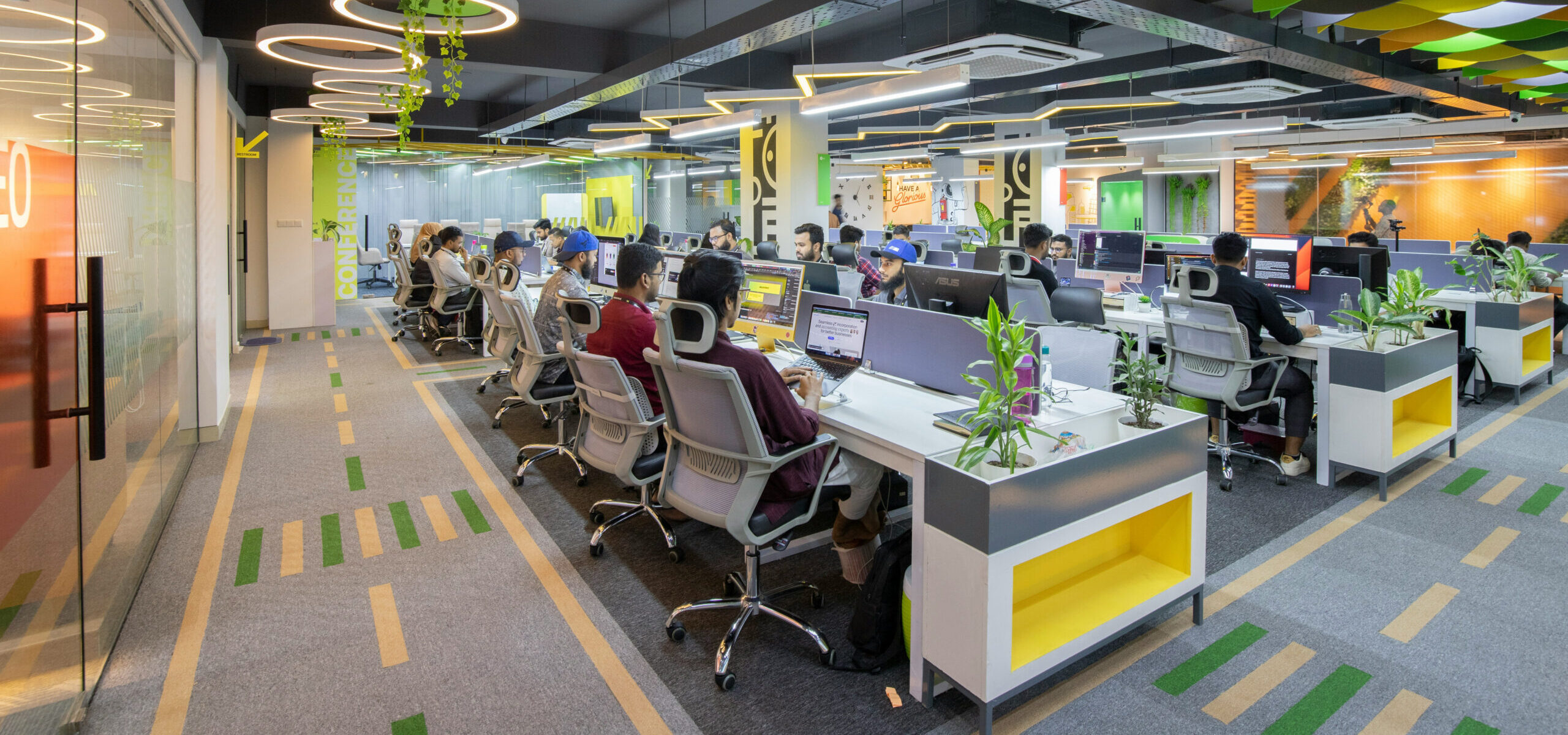GCCs Drive India’s Office Space Demand, Tech Sector Claims 94% Absorption in 2024: CBRE
The software and services sub-segment commanded a substantial 94% share of space absorption by technology sector GCCs in 2024, underscoring India’s growing prominence as a hub for tech innovation and digital transformation, a latest report by CBRE has said.
This dominance is driven by increasing demand for specialised IT services, product development, and sophisticated R&D capabilities, with companies leveraging India’s vast talent pool for global delivery models. Simultaneously, within the BFSI sector in 2024, global banks constituted 51% of leasing activity, primarily driven by the need for robust back-office operations, digital banking solutions, and compliance support.
Financial services and investment firms also represented a significant share of 42%, reflecting expansion in areas like wealth management technology and advanced analytics functions.
U.S. companies continued to be the primary drivers of GCC growth in India, capitalising on the skilled workforce and mature business environment. Concurrently, leasing by non-U.S. firms, particularly from EMEA and APAC regions, experienced significant acceleration, signalling a diversification in the origin of new GCC setups and expansions, the report noted.
This aggressive expansion by GCCs was significantly aided by mid to large-sized office space deals, ranging from 50,000 to over 200,000 sq. ft., indicating strong confidence in India as a long-term strategic location for establishing and scaling global operations.
Furthermore, a notable preference for newer, green-certified integrated tech parks was observed among GCCs, reflecting a growing emphasis on sustainable infrastructure, modern amenities, and employee well-being, aligning with global corporate environmental, social, and governance (ESG) objectives.
Global firms prefer setting-up or expanding their operations in cities with a substantial skilled talent pool and established ecosystems, such as Bengaluru, Hyderabad and Pune. These cities offer not only a deep reservoir of specialised skills in technology and finance but also robust infrastructure and a supportive regulatory environment.
As India solidifies its position as a global hub for GCCs, the outlook for the coming years remains exceptionally strong.
India is anticipated to continue its dominance as a leading market for GCCs, driven by its growing pool of STEM talent. This talent advantage is not just in numbers, but also in specialised skills across emerging technologies like artificial intelligence, machine learning, data science, cybersecurity and cloud computing.
GCC headcount across the country is likely to reach 2.5 – 2.8 million, while the number of GCC units is expected to be in the range of 4,300 – 4,400 by 2030. This growth underscores India’s unparalleled capacity to provide highly skilled professionals and innovative solutions for global operations.
Space absorption by GCCs is likely to account for about 35-40% of the overall office leasing in India in 2025-2026. This significant share reflects the continued physical expansion of GCC operations across major Indian cities.
The demand is being fuelled by both new entrants establishing their first centres and existing GCCs expanding their footprint to accommodate growing teams and more complex mandates. This trend highlights the direct impact of GCC growth on the commercial real estate sector, signalling robust demand for high-quality office spaces.
CBRE expects about 60-65% of the new supply in 2025-2026 to be in integrated tech parks, thereby supporting the expansion of GCCs. These modern tech parks offer state-of-the-art infrastructure, sustainable features (such as green certifications), and a comprehensive suite of amenities, including F&B options, fitness centres and collaborative spaces.
In addition to the traditional sectors like technology and BFSI, newer industries, including energy, aerospace, semiconductors, life sciences, and automotives, are expected to establish their GCCs in the country owing to their ongoing digitalisation initiatives.
These sectors are increasingly leveraging digital technologies for R&D, supply chain management, customer experience, and operational efficiency. India’s diverse talent pool and robust digital infrastructure make it an attractive destination for these industries to build specialised capabilities and drive their digital transformation agendas.


















